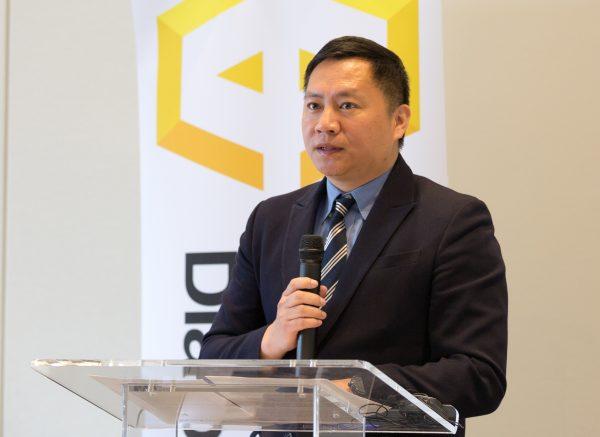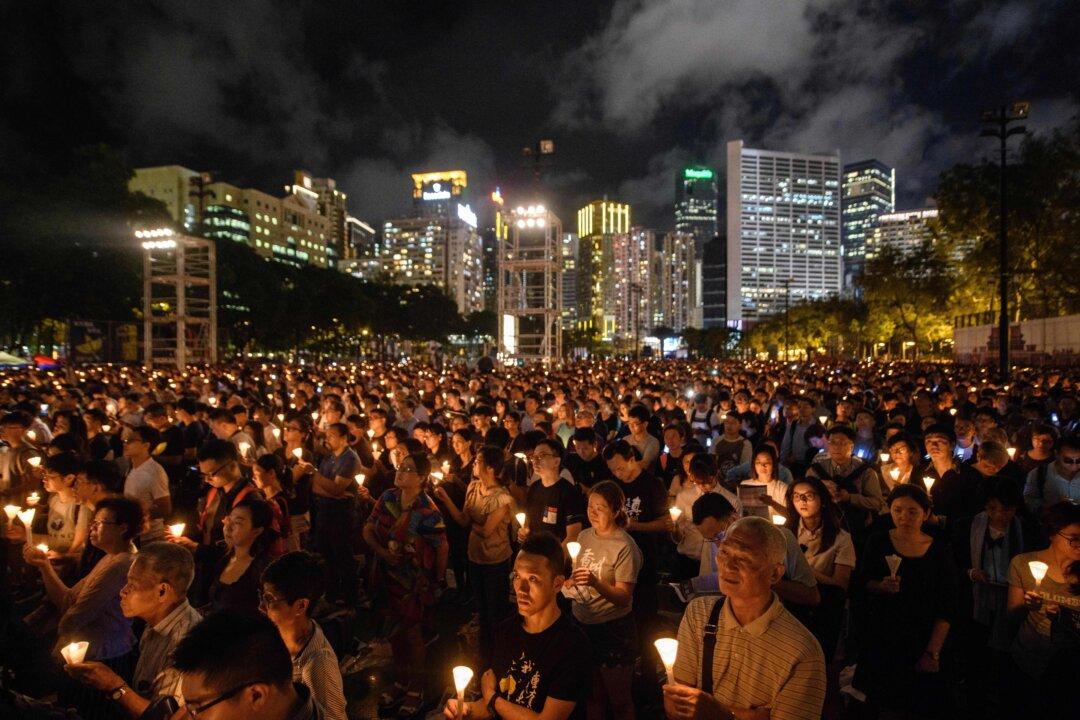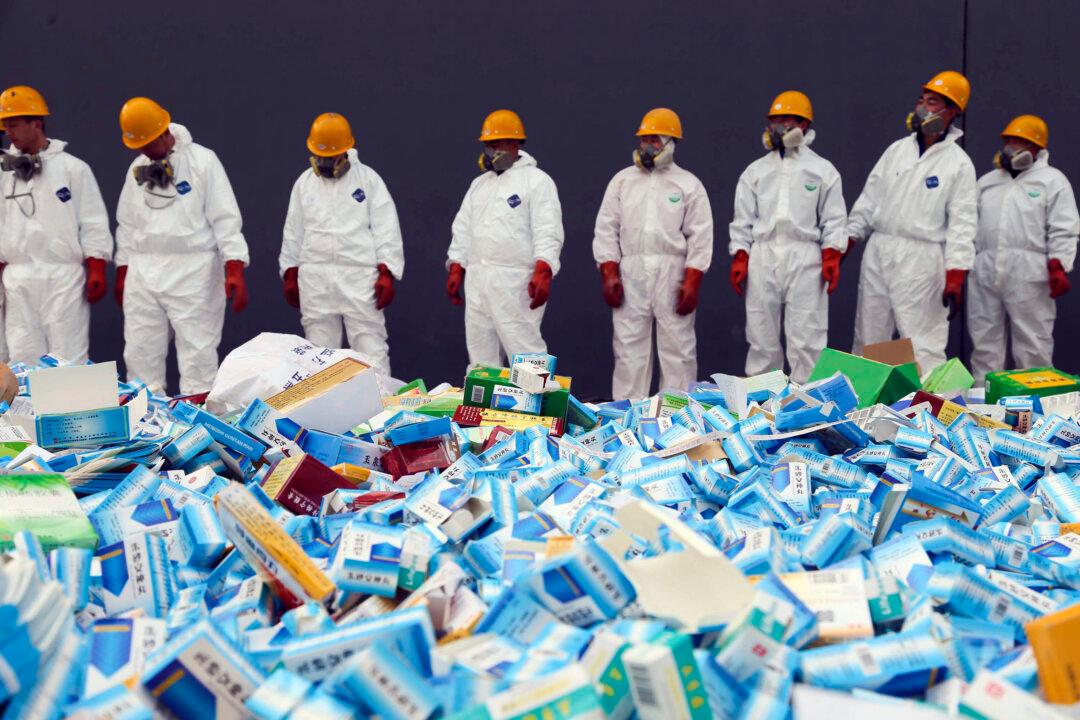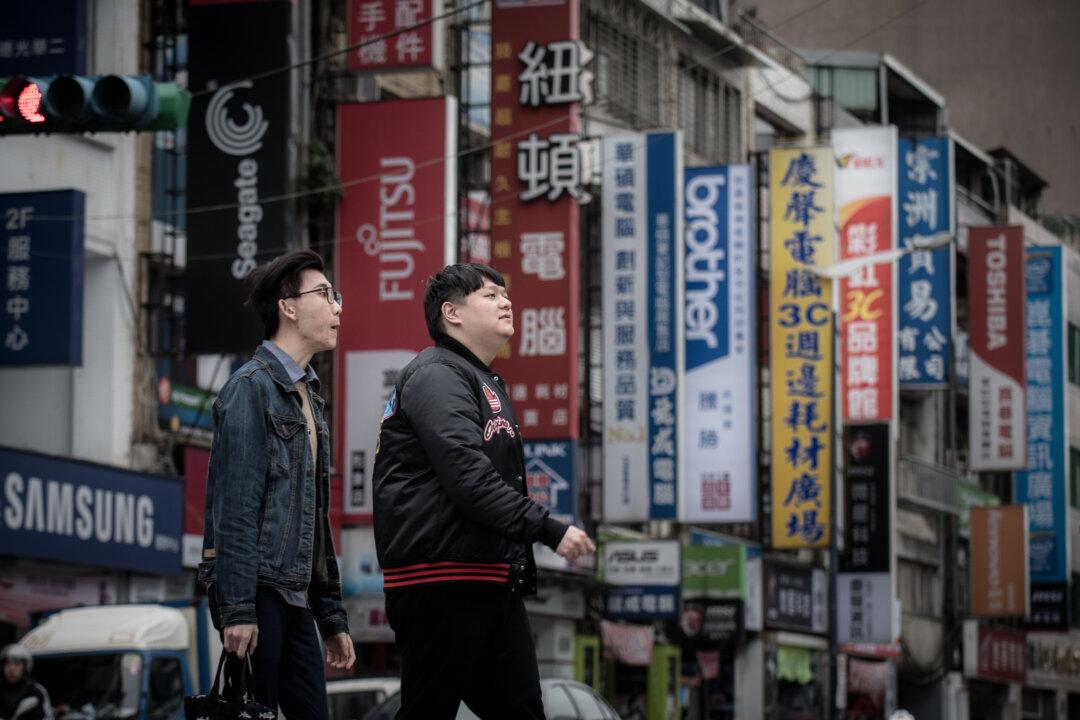On the anniversary of the Chinese regime’s crackdown on student protests at Tiananmen Square, the United States has urged Beijing to “make a full public accounting of the event” that took place 29 years ago. Chinese activists overseas marked the anniversary with protests and a new think tank dedicated to exposing the regime’s misdeeds and advocating for democracy.
The bloody crackdown on pro-democracy Chinese student protesters at Tiananmen Square on June 4, 1989, remains one of the most censored political taboos in China today, as the Chinese regime has consistently downplayed the People’s Liberation Army’s bloody “cleansing” of Beijing streets and Tiananmen Square that night.
The number of casualties has never been fully disclosed, though estimates by human rights groups and witnesses range from several hundred to several thousand.
On Monday, the massacre’s 29th anniversary, U.S. Secretary of State Mike Pompeo released a statement calling for the Chinese regime to be accountable.
“On the 29th anniversary of the violent suppression of peaceful demonstrations in and around Tiananmen Square on June 4, 1989, we remember the tragic loss of innocent lives.” Pompeo’s statement said.
“We join others in the international community in urging the Chinese government to make a full public accounting of those killed, detained or missing,” he said. “[Beijing should act to] release those who have been jailed for striving to keep the memory of Tiananmen Square alive, and to end the continued harassment of demonstration participants and their families.”
Chinese dissidents in the United States and across the world also organized various events commemorating the 1989 crackdown. The largest, held in Hong Kong on Monday night, reportedly attracted more than 110,000 people.
Elsewhere in the world, much smaller protests were held in many major cities, such as one that took place in front of the Chinese Embassy in Washington on June 2, at which dozens of Chinese activists were in attendance.

The think tank will be a platform to advocate changes in China toward democracy, through engaging with and influencing overseas Chinese students, especially those in America, according to its website.
“Everything that happened in China does not mean democracy would not have hope. On the contrary, the great uncertainty generated by China may perhaps provide us some opportunities we have never imagined,” said Wang. “We need to be prepared for this opening.”
Wang would not disclose specific details about the funding of his think tank, but said that many small Chinese business owners and donors provided support.
Speaking at Dialogue China’s launch event on Monday morning, Carl Gershman, president of the U.S.-funded National Endowment for Democracy, said that the Chinese Communist Party needs a “rewrite of history” in order for its regime to survive, of which the coverup of the 1989 Tiananmen Square massacre is a prime example.
Hu Ping, another well-known Chinese dissident, said that the lack of democracy in China will eventually bring about catastrophic consequences for the United States and the world, as the Chinese Communist Party continues to increase its power while acting aggressively overseas.
Tsai’s post was intentionally written in simplified Chinese (Taiwan still uses traditional characters), presumably to make it easier for netizens in mainland China to read, though Facebook is blocked in mainland China and remains inaccessible for those without censorship circumvention tools.




